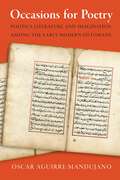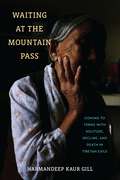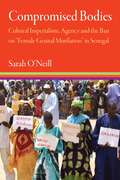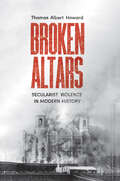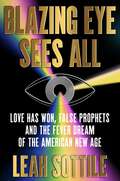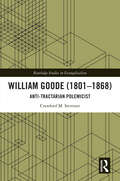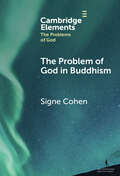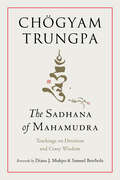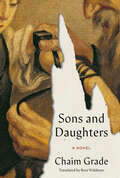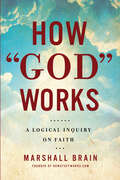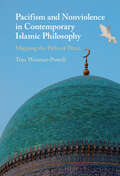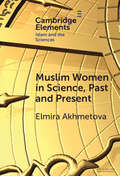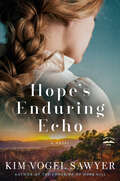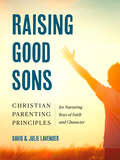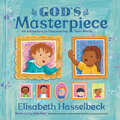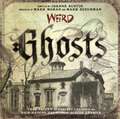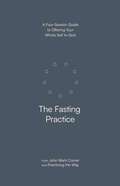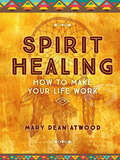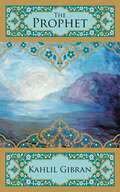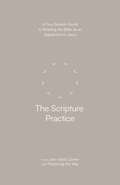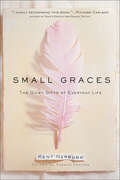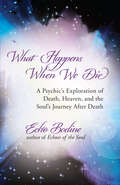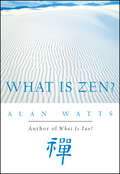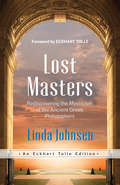- Table View
- List View
Kundalini: A Journey to Spiritual Awakening
by Gopi KrishnaCoiled like a snake at the base of the spine, kundalini is the spiritual force that lies dormant in every human being. Once awakened, often through meditation and yoga practices, it rises up the spine and finds expression in the form of spiritual knowledge, mystical vision, psychic powers, and ultimately, enlightenment. This is the classic first-person account of Gopi Krishna, an ordinary Indian householder who, at the age of thirty-four, after years of unsupervised meditation, suddenly experienced the awakening of kundalini during his morning practice. The story of this transformative experience, and the author's struggle to find balance amid a variety of powerful physiological and psychic side effects, forms the core of the book. His detailed descriptions of his dramatic inner experiences and symptoms such as mood swings, eating disorders, and agonizing sensations of heat—and of how, with the help of his wife, he finally stabilized at a higher level of consciousness—make this one of the most valuable classics of spiritual awakening available.
Occasions for Poetry: Politics, Literature, and Imagination Among the Early Modern Ottomans
by Oscar Aguirre-MandujanoHow Turkish poetry became the preferred mode for communicating, debating, and shaping political and social experience in the early Ottoman EmpireOccasions for Poetry is a history of how Turkish poetry became the preferred mode for communicating, debating, and shaping political and social experience in the early Ottoman Empire. After the conquest of Constantinople in 1453, Ottoman elites at the imperial court turned to poetry to craft distinctive modes of expression in order to articulate their own place within the Ottoman sultanate.Placing Ottoman court poetry in its social and historical context, Oscar Aguirre-Mandujano argues that poetry functioned as a political act. Aguirre-Mandujano examines the occasions that compelled the Ottomans to compose poetry, to present it to their superiors, to share it with their peers, and to spend considerable efforts and time to make poetry often and to make it well. He explores how scholars and bureaucrats interacted with each other through poetic imagery, revealing how literary language affected bureaucratic practice. Poetry was not only an artistic activity, but also a means to advance or save one’s own political or bureaucratic career.For the Ottoman elite, poetry was more than a creative activity or a flattering description of Ottoman power and expansion; it was a vehicle to shape and mold their social reality. The language and genres created and used by these early modern Ottomans would define both a literary tradition and the shape of imperial politics and power for almost six centuries, until the end of the empire in the twentieth century.
Waiting at the Mountain Pass: Coming to Terms with Solitude, Decline, and Death in Tibetan Exile (Contemporary Ethnography)
by Harmandeep Kaur GillAn intimate meditation on aging and dying in exile among elderly Tibetans in Dharamsala, IndiaIn a Tibetan saying, the journey of life is likened to a climb up to a mountain pass. Upon reaching it, the journey concludes and one must cross over into death and the next rebirth. The impermanence of life—described by the Buddha as the nature of reality—crystallizes at the mountain pass, manifesting itself through the painful and arduous descent ahead and a series of sufferings.In this book, Harmandeep Kaur Gill offers an intimate meditation on the last part of the journey at the mountain pass through closely drawn portraits of elderly, exiled Tibetans who aged in Dharamsala, India, far away from their beloved homeland of Tibet, and often alone, in the absence of family. In Gill’s work, the mountain pass represents a “borderland,” an in-between world, where the elderly found themselves living at the crossroad between life and death, belonging fully to neither of them. It was a time-space where everyday life traversed between past and present, in darkness and light, and in dream and reality, as the elderly attempted to come to terms with the realities of their old age.By placing relational entanglements and sensations at the heart of its theorization, Waiting at the Mountain Pass foregrounds an embodied knowing that is care-ful, hesitant, and unresolved in its claims. Aiming to bridge the gap between ethics and epistemology, Gill invites the reader to see and listen in a relational and imaginative way where the other reflects back upon the self, making the assumed separations between subject and object blurry and unsettling. Through meditations on the interrelations of body and mind, society and individual, and the real and the imagined, Waiting at the Mountain Pass provides a sensorial and compassionate understanding of the singularities of life and death in a Tibetan Buddhist world in exile.
Compromised Bodies: Cultural Imperialism, Agency, and the Ban on “Female Genital Mutilation” in Senegal (Contemporary Ethnography)
by Sarah O'NeillThis ethnography unravels the continuing political tensions surrounding Senegal’s 1999 national ban on “female genital mutilation”The Senegalese parliament authorized a national ban on “Female Genital Mutilation” in 1999. Because only a third of the Senegalese population practiced female genital cutting (FGC) at the time, policy makers did not expect that the new law would cause controversy or provoke commotion. Yet, in Fouta Toro and among Fulani, who traditionally practiced FGC, the response to the new law was fury, and frustrations often turned violent. More than a decade after the ban, Fouta Toro was considered “the most difficult region” for anti-FGC activists, both from inside and outside the government. Tires were burned, international NGO delegates were threatened, and activists publicly speaking out against the practice were religiously condemned. Animosity toward the ban remains palpable in the region to this day. The ban, many (but not all) locals say, is nothing other than an overt act of Western cultural imperialism imposed on their community. For these individuals, resisting the ban is critical for maintaining the autonomy and integrity of a traditional way of life. And from the outside, opposition to the law and NGOs can seem unified.However, anthropologist Sarah O’Neill discovers that on the ground, there are tensions between those who oppose the ban and those who support it—even as that support is nuanced and often complicated. This ethnography unravels the continuing political tensions surrounding both national and international interventions in Fouta Toro and in Senegal that place protection of the female body at the center of their concerns. By way of the many stories of ordinary women and men caught up in debates around the value of the practice and meaning of FGC, Compromised Bodies reveals the personal struggles and difficult decisions Fulani face, be they traditional cutters, religious leaders, mothers, husbands, divorced women, or anti-FGC activists.
Broken Altars: Secularist Violence in Modern History
by Thomas Albert HowardA sweeping history of the violence perpetrated by governments committed to extreme forms of secularism in the twentieth century A popular truism derived from the Enlightenment holds that violence is somehow inherent to religion, to which political secularism offers a liberating solution. But this assumption ignores a glaring modern reality: that putatively progressive regimes committed to secularism have possessed just as much and often a vastly greater capacity for violence as those tied to a religious identity. In Broken Altars, Thomas Albert Howard presents a powerful account of the misery, deaths, and destruction visited on religious communities by secularist regimes in the twentieth century. Presenting three principal forms of modern secularism that have arisen since the Enlightenment—passive secularism, combative secularism, and eliminationist secularism—Howard argues that the latter two have been especially violence-prone. Westerners do not fully grasp this, however, because they often mistake the first form, passive secularism, for secularism as a whole. But a disconcertingly more complicated picture emerges with the adoption of a broader global vision. Admitting different species of secularism, greater historical perspective, and case studies drawn from the former Soviet Union, Turkey, Mexico, Spain, Czechoslovakia, Albania, Mongolia, and China, among other countries, Howard calls into question the conventional tale of modernity as the pacifying triumph of secularism over a benighted religious past.
Blazing Eye Sees All: Love Has Won, False Prophets, and the Fever Dream of the American New Age
by Leah SottileIn this "unflinching and wildly entertaining" investigation of the modern New Age movement in America, a journalist aims to understand how women like Amy Carlson (the leader of Love Has Won) and others become devoutly invested in their beliefs (Talia Lavin, author of Culture Warlords). Today, tarot cards, astrology and crystals are everywhere — on Instagram and TikTok, and sold at upscale boutiques and pricey wellness retreats. Journalist Leah Sottile turns her investigative eye toward the recent surge of New Age influencing American Culture. She looks at self-professed gurus like Love Has Won's Mother God and the mysterious channeler Ramtha, who have built devout followings based on their teachings. For more than a century, this pastel-colored world of love, light and enlightenment has been built upon a foundation of conspiracies, antisemitism, nationalism and a rejection of science. In Blazing Eye Sees All, Sottile seeks to understand the quest for New Age spirituality in an era of fear that has made us open to anything that claims to bring relief from war, the climate crisis, COVID 19, and the myriad of other issues we face. At the same time, she attempts to draw a line between truly helpful, healing ideas and snake oil—helping us sort through the crystals to find true clarity.
William Goode: Anti-Tractarian Polemicist (Routledge Studies in Evangelicalism)
by Crawford M. StevenerThis book examines the theology of William Goode (1801-1868), a leading Church of England theological polemicist in the nineteenth century.During exceedingly turbulent periods for the Church of England, William Goode was the foremost historical scholar who consistently rose to the occasion to write in defence of the church’s reformed and protestant nature. His position as the pre-eminent refuter of Tractarian theology is developed and interpreted contextually in this volume. Through a meticulous reading of all of Goode’s original works, relevant Victorian newspapers and journals, as well as surviving manuscript evidence, a full picture of Goode’s theology in his nineteenth-century context is delineated. Goode’s writing on successive doctrinal topics is examined in the context of theological crises besieging the Church of England and analysis of his corpus is demonstrated to be important for considering both reactions to the Oxford Movement and Anglican evangelical theology. The chapters consider Goode’s role in ecclesiastical judicial settings, his defence of the Protestant nature of the Church of England as legally established in the Reformation, and his evangelical Anglican interpretation of the English formularies.This book is valuable reading for scholars of Church history and religious history, particularly those with an interest in the Oxford Movement, Anglicanism, Evangelicalism, and the Reformation.
The Problem of God in Buddhism (Elements in the Problems of God)
by Signe CohenSince Buddhism does not include a belief in a personal god instrumental to the creation of the world or to human salvation, it is often assumed that gods play no part in Buddhism at all. This Element complicates the simplistic assessment of Buddhism as an 'atheistic religion' and discusses the various roles deities play in Buddhist texts and practice. The Problem of God in Buddhism includes a comprehensive analysis of the Buddhist refutations of a creator God, the idea of salvation without divine intervention, the role of minor deities in Buddhism, the question of whether Buddhas and Bodhisattvas can function as gods in certain forms of Buddhism, and the notion of the sacred as apart from the divine in Buddhist traditions.
The Sadhana of Mahamudra: Teachings on Devotion and Crazy Wisdom
by Chogyam TrungpaAn in-depth commentary on &“The Sadhana of Mahamudra,&” a visionary text from Chögyam Trungpa on surrendering, renunciation, and devotion.In 1968, while on retreat in a cave in Bhutan, Chögyam Trungpa revealed &“The Sadhana of Mahamudra,&” a terma text, or visionary teaching, that illuminated the problems of spiritual corruption and materialism. From that time on, his teachings were dedicated to providing his students with the wisdom and skill to overcome these problems in themselves and in the world.In later years, Chögyam Tungpa offered teachings to unpack the meaning of the practice. That extensive commentary is contained here, where he lays the groundwork we need to gain a deeper appreciation of this profound text and how it applies to our own lives and practice. As he states in the book, &“The sadhana is a prototype of how emotion and wisdom can work together.&”Previously published as Devotion and Crazy Wisdom, this new edition includes for the first time the text of the sadhana. Also included is an updated list of resources for further study, an index, a new foreword by Samuel Bercholz, and updated introductory material—including a new introduction from Carolyn Gimian discussing the significance of &“The Sadhana of Mahamudra.&”
Sons and Daughters: A Novel
by Chaim GradeFrom &“one of the great—if not the greatest—contemporary Yiddish novelists&” (Elie Wiesel), the long-awaited English translation of a work, Tolstoyan in scope, that chronicles the last, tumultuous decade of a world succumbing to the march of modernity&“A great beard novel . . . Also a great food novel . . . A melancholy book that also happens to be hopelessly, miraculously, unremittingly funny . . . [Grade&’s] fretful characters vibrate as if they were drawn by Roz Chast [and] Rose Waldman's translation seems miraculous to me.&” —Dwight Garner, The New York Times&“It is me the prophet laments when he cries out, &‘My enemies are the people in my own home.&’&” The Rabbi ignored his borscht and instead chewed on a crust of bread dipped in salt. &“My greatest enemies are my own family.&”Rabbi Sholem Shachne Katzenellenbogen&’s world, the world of his forefathers, is crumbling before his eyes. And in his own home! His eldest, Bentzion, is off in Bialystok, studying to be a businessman; his daughter Bluma Rivtcha is in Vilna, at nursing school. For her older sister, Tilza, he at least managed to find a suitable young rabbi, but he can tell things are off between them. Naftali Hertz? Forget it; he&’s been lost to a philosophy degree in Switzerland (and maybe even a goyish wife?). And now the rabbi&’s youngest, Refael&’ke, wants to run off to the Holy Land with the Zionists.Originally serialized in the 1960s and 1970s in New York–based Yiddish newspapers, Chaim Grade&’s Sons and Daughters is a precious glimpse of a way of life that is no longer—the rich Yiddish culture of Poland and Lithuania that the Holocaust would eradicate. We meet the Katzenellenbogens in the tiny village of Morehdalye, in the 1930s, when gangs of Poles are beginning to boycott Jewish merchants and the modern, secular world is pressing in on the shtetl from all sides. It&’s this clash, between the freethinking secular life and a life bound by religious duty—and the comforts offered by each—that stands at the center of Sons and Daughters. With characters that rival the homespun philosophers and lovable rouges of Sholem Aleichem and I. B. Singer—from the brooding Zalia Ziskind, paralyzed by the suffering of others, to the Dostoyevskian demon Shabse Shepsel—Grade&’s masterful novel brims with humanity and heartbreaking affection for a world, once full of life in all its glorious complexity, that would in just a few years vanish forever.
How "God" Works: A Logical Inquiry on Faith
by Marshall BrainDoes God exist? Using an intellectually rigorous, scientific approach, Marshall Brain—the founder of HowStuffWorks.com and author of the How Stuff Works series—sets out to resolve the eternal debate once and for all. With a compelling sense of curiosity, he breaks down mankinds search for a higher power, tackling such quandaries as: Who is God? What are his attributes? What is God doing and why? How does God interact with humanity? And ultimately, how can humans know with certainty whether God is real or imaginary?How God Works is an enlightening journey in critical thinking that challenges readers to boldly approach the subject of personal faith and put aside intuition in favor of objectivity and logic.
Pacifism and Non-Violence in Contemporary Islamic Philosophy: Mapping the Paths of Peace
by Tom Woerner-PowellIn Pacifism and Nonviolence in Contemporary Islamic Philosophy, Tom Woerner-Powell combines historical analysis and contemporary interviews with Muslim peace advocates in an effort to develop an empirically grounded survey of Islamic philosophies of nonviolence and a general analysis of the phenomenon. The first monograph on Islamic nonviolence to engage substantively with contemporary debates in the field of moral philosophy, his study is critical and descriptive rather than apologetic and polemical. His approach is both multidisciplinary and interdisciplinary. Drawing on methods from the fields of peace studies, Islamic studies, and moral philosophy, he identifies, critiques, and addresses the shortcomings within the dominant approaches in these fields regarding the question of pacifism and nonviolence in contemporary Islam. Woerner-Powell's book sheds new light not only on Islamic cases of nonviolence but also on the manner in which Islamic thought might play a larger role in secular and inter-religious debates. This title is also available as open access on Cambridge Core.
Muslim Women in Science, Past and Present (Elements in Islam and Science)
by Elmira AkhmetovaThis Element examines issues related to Muslim women's engagement in science and scholarship both past and present. The first two parts discuss the contributions made by Muslim women to scholarly, scientific, and technological advancements. The third part discusses the factors that have contributed to a decline in Muslim women's scholarly involvement in Islamic civilisation, the veracity of historical accounts, and the constraints in original knowledge production in contemporary Muslim societies. It finds that there are no religious restrictions rooted in the Qur'an that forbid women from pursuing a profession in science, whether as learners or practitioners. Yet some economic and political circumstances, cultural influences, and outdated interpretations of Islam produce discrimination against women in Muslim societies, and lead to their underrepresentation in scientific research and academia.
Hope's Enduring Echo: A Novel
by Kim Vogel SawyerA charming historical romance about two young people whose discovery of fossilized bones leads to a love that echoes through the ages—from the bestselling author of The Songbird of Hope Hill&“A novel rich in friendship, faith, love, and the resiliency of hope. A story to lift your heart and warm your soul.&”—Cathy Gohlke, Christy Award Hall of Fame, author of Ladies of the Lake and This Promised LandSince an accident left her father unable to work, Jennie Ward has taken on the demanding task of inspecting the isolated seven-mile wooden pipeline that supplies water to Cañon City, Colorado. Despite her responsibilities, Jennie harbors dreams of going back to school and longs for something even simpler: a friend. One day, in a moment of impulsive and seemingly hopeless prayer, she asks God for companionship.Her prayer is answered almost immediately with the arrival of Leo Day, a paleontology student searching for ancient bones buried along the ridges of the wild Arkansas River. Despite her long workdays, Jennie agrees to guide Leo in his quest.As Jennie navigates her burgeoning friendship with Leo and her unwavering loyalty to her father, she finds herself torn. Leo, who longs for his own father&’s approval, could change all Jennie knows. It&’s undeniable that God has intertwined their paths, but to what end? With so much at stake, what does He truly intend for the preacher&’s son and the linewalker&’s daughter to uncover?
Raising Good Sons: Christian Parenting Principles for Nurturing Boys of Faith and Character
by David Lavender Julie LavenderThe essential gospel-led parenting book for raising good sonsIn a world filled with countless parenting books and ever-changing advice, Christian parents often seek a single, unwavering source of guidance: God&’s Word. In Raising Good Sons, readers will learn how to lean on God while raising boys who are not only resilient and morally grounded but also deeply rooted in their faith. With heartfelt encouragement and scriptural wisdom, this book will become your trusted companion, reminding you that with God you are never lost or alone in your parenting journey.Raising Good Sons features:Essential Christian parenting principles that keep you grounded and anchored as you raise your son no matter what stage you&’re in.Relevant topics and issues that all parents of sons are navigating, such as building a personal relationship with Jesus, modeling godly behavior, learning respect, showing love, and much more.Biblical lessons in action that can be applied right away.Inspiring and supportive prayers that remind parents to keep God at the center.
God's Masterpiece: An Adventure in Discovering Your Worth
by Elisabeth HasselbeckJoin the New York Times bestselling author of Flashlight Night in this fun picture book tour of an art museum! As kids marvel at the vibrant colors and incredible designs, they learn that God has crafted them as His very own works of art.Join two curious children on an adventure through an art museum in this charming celebration of how God made us. From Claude Monet&’s peaceful water lilies to Georgia O&’Keeffe&’s stunning flowers, every piece the children see reflects the artist&’s God-given creativity. Elisabeth Hasselbeck&’s rhyming text connects the dots (or dot-dot-dots, in the case of master of pointillism Georges Seurat) to how God himself lovingly creates each of his children. Our God makes us one of a kind!You&’re priceless, don&’t you seeBecause there is no other youand there is no other me!
Weird Ghosts: True Tales of the Eeriest Legends and Hair-Raising Hauntings Across America (Weird #24)
by Mark Moran Mark Sceurman Joanne AustinPrepare to be scared! This fully illustrated, award-winning collection of ghost stories will send shivers down your spine. If you're fascinated by haunted houses, ghostly graveyards, historic haunts, institutional apparitions, or spirited saloons, this spooky and spine-tingling collection of supernatural stories from across the US will tantalize your paranormal palate. Some of these hot spots are open to the public (and we include their address and website information), while others are private residences with no visitors allowed. In this bone-chilling volume, witnesses tell terrifyingly true tales of cursed roads, ghoulish schools, eerie eateries, and more—so expect to be frightened out of your wits!Now in a modern square format, featuring more photographs and illustrations and a fresh new design.
The Fasting Practice: A Four-Session Guide to Offering Your Whole Self to God
by Practicing the Way John Mark ComerLearn how the powerful yet neglected spiritual discipline of fasting can awaken your entire being to a deep hunger for God, in this guide from New York Times bestselling author John Mark Comer and the team at Practicing the Way.In our culture of constant consumption, the biblical practice of fasting is both countercultural and transformative. This Companion Guide to the Fasting Practice from Practicing the Way offers spiritual exercises, reflection questions, and guided readings. Featuring four engaging video sessions, the Fasting Practice is designed to be run with your community and is available online for free.This guide will help you:Understand the invitation to fast as a rhythm or a responseOffer your whole self to God in surrenderGrow in holiness by integrating mind and bodyAmplify both your prayers to God and God&’s voice to you Stand in solidarity with the poor and against injustice Discover how incorporating fasting as a way of life can lead to a deeper connection with God, a renewed sense of purpose, and a more embodied apprenticeship.
Spirit Healing: How To Make Your Life Work
by Mary Dean AtwoodFollow the Rainbow Path, with this the classic reference to Native American healing—now with an attractive new cover and design. For centuries, tribal shamans have used these remarkable healing practices to bring spiritual seekers into harmony with the world around them. In keeping with that Native tradition, mystic Mary Dean Atwood uses symbolic stories to illustrate the power of shamanic techniques, and offers detailed guidance to help you change your thought patterns, eliminate mind-cluttering worries, and develop contact with your spirit guide. Master the secrets of rock divination, animal-spirit communication, and message reading—and embark upon a life-altering vision quest to find your higher self.
The Prophet
by Kahlil GibranAlmustafa, the chosen and the beloved, who was a dawn unto his own day, had waited twelve years in the city of Orphalese for his ship that was to return and bear him back to the isle of his birth.And in the twelfth year, on the seventh day of Ielool, the month of reaping, he climbed the hill without the city walls and look seaward; and he beheld his ship coming with the mist.Then the gates of his heart were flung open, and his joy flew far over the sea. And he closed his eyes and prayed in the silences of his soul. So begins The Prophet, Kahlil Gibran&’s collection of twenty-eight prose poems on the themes of love, marriage, joy and sorrow, reason and passion, freedom, beauty, death—the essence of what we define as the human condition. Profound in its spirituality and elegant in its telling, Gibran&’s masterwork has sold millions of copies since it was first published in 1923 and is admired around the world for its wisdom and philosophical insights. This edition features twelve illustrations drawn by the author to accompany his inspirational text.
The Scripture Practice: A Four-Session Guide to Reading the Bible as an Apprentice to Jesus
by Practicing the Way John Mark ComerLearn how to sit at the feet of Jesus through pages of Scripture in this guide from New York Times bestselling author John Mark Comer and the team at Practicing the Way.In an impatient, hurried, and quick-to-critique culture, Scripture can seem dry and tedious—just one more task on our religious to-do list. This approach is tragic because we miss out on the life-giving experience of sitting at the feet of Jesus.But as we learn to read with hearts open to Jesus and with an awareness of Scripture's cultural and literary backdrop, we can experience it as a channel to God. This Companion Guide to the Scripture Practice from Practicing the Way offers spiritual exercises, reflection questions, and guided readings. Featuring four engaging video sessions, the Scripture Practice is designed to be run with your community and is available online for free.This guide will help you: Approach Scripture with the heart of an apprenticeIntegrate the Hebrew practice of biblical meditationEmbrace the cultural and literary depth of Scripture for fruitful study Develop an &“inner library&” through the memorization of ScriptureLearn how to read Scripture in such a way that the presence of Jesus shapes not only your thinking but also the kind of person you become.
Small Graces: The Quiet Gifts of Everyday Life
by Kent NerburnIn twenty elegant pieces, writer, sculptor, and theologian Kent Nerburn celebrates the daily rituals that reveal our deeper truths. A companion piece to Kent Nerburn?s book Simple Truths, Small Graces is a journey into the sacred moments that illuminate our everyday lives. Through the exploration of simple acts, he reminds us to chart a course each day that nourishes the soul, honors the body, and engages the mind. Small Graces asks us to observe life?s quiet rhythms, the subtle shifts in perception and changes in light, the warm comfort of family voices; to feel the blessing of birdsong, the solitude of a falling leaf, the echo of footfall in snow-covered woods. By inviting us to recognize the hidden power of the ordinary, Small Graces reveals the mystical alchemy of the mundane made profound by the artistry of a well-lived life.
What Happens When We Die: A Psychic's Exploration of Death, Heaven, and the Soul's Journey After Death
by Echo BodineThe success of mega-bestsellers like Proof of Heaven and 90 Minutes in Heaven shows that readers hunger for insight into what happens when we die. But can we know? Are there those who’ve been “there” and back? Echo Bodine is beloved for her down-to-earth wisdom on the decidedly out of this world. In these pages, she shares her lifetime of learning — and personal experience — about the above questions. She offers practical tools for being with the dying (including what not to do), for grieving (through the poignant experience of her own mother’s passing as Bodine was writing this book), and for cultivating clear and inspiring communication with the deceased. Learning what happens when we die turns out to be inspiring, reassuring, and profoundly life changing.
What Is Zen?
by Alan WattsA fervent, lifelong student of Zen, Alan Watts shows us that it is both an experience — a singular, powerful moment of realization — and a simple way of life, with an awareness that affects every moment of every day. Adopted by mainstream America in a way that carries only a vague association of its roots in Zen Buddhism, Alan Watts makes it clear that any exploration of Zen must understand and embrace its roots as a form of Buddhist practice derived from its Chinese and East Indian sources. Examining the background of Zen in East Indian religion, Watts shows us its evolution through the religion of China. Zen is a synthesis of the contemplative insight of Indian religion and the dynamic liveliness of Taoism as they came together in the pragmatic, practical environment of Confucian China. Watts gives us great insight into the living moment of satori and the release of nirvana, as well as the methods of meditation that are current today, and the influence of Zen culturally in the arts of painting and pottery.
Lost Masters: Rediscovering the Mysticism of the Ancient Greek Philosophers (An Eckhart Tolle Edition)
by Linda JohnsenAshrams in Europe twenty-five hundred years ago? Greek philosophers studying in India? Meditation classes in ancient Rome? It sounds unbelievable, but it’s historically true. Alexander the Great had an Indian guru. Pythagoras, Empedocles, and Plotinus all encouraged their students to meditate. Apollonius, the most famous Western sage of the first century c.e., visited both India and Egypt—and claimed that Egyptian wisdom was rooted in India. In Lost Masters, award-winning author Linda Johnsen, digging deep into classical sources, uncovers evidence of astonishing similarities between some of the ancient Western world’s greatest thinkers and India’s yogis, including a belief in karma and reincarnation. Today ancient Greek philosophers are remembered as the founders of Western science and civilization. We’ve forgotten that for over a thousand years they were revered as sages, masters of spiritual wisdom. Lost Masters is an exploration of our long-lost Western spiritual heritage and the surprising insights it can offer us today.

